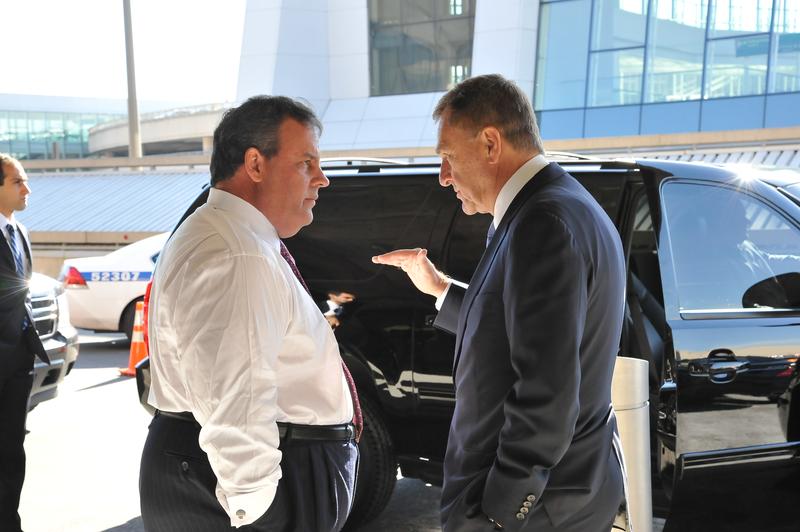
There actually may be an answer to the question: What did Chris Christie know about Bridgegate, and when did he know it?
Legal papers filed late Wednesday in federal court in Newark revealed the existence of a list of names, prepared by prosecutors, of individuals whom prosecutors believe "were aware of the alleged criminal conspiracy charted in this case, but did not join" the plot to disrupt the world's busiest bridge for political retaliation against a Christie foe. In other words, they knew about it, but did nothing.
Such a list could include employees of the Port Authority, the Christie campaign, or even the governor himself.
A Christie spokesman, Brian Murray, said Christie had addressed the issue at a press conference Tuesday, when he called the Bridgegate scandal "old news." At the news conference, held before the existence of the second list was confirmed, Christie said he is "highly doubtful" his name would be on a list of co-conspirators.
But this second list -- let's call it the knowledge list -- is distinct from a list of unindicted co-conspirators in the Bridgegate case. A judge has already ordered the release of that list of names of unindicted co-conspirators by noon on Friday following legal action from news organizations, including New York Public Radio.
Bruce Rosen, a First Amendment lawyer for the media organizations, said he would swiftly move to make the knowledge list public as well.
David Wildstein, the former top Christie appointee at the Port Authority who pleaded guilty to federal crimes a year ago, has long maintained Christie was aware of the scheme. After Wildstein appeared in court last May, his lawyer, Alan Zegas, affirmed that "evidence exists" of Christie's knowledge of the politically-motivated plot —but no public document has linked Christie to prior knowledge of the lane closures.
And Christie, from the beginning, has brushed off any suggestion he knew anything about the closures. "I worked the cones, actually, Matt," Christie told New Jersey Public Radio's Matt Katz the first time Christie was asked about a so-called traffic study jamming traffic on the George Washington Bridge. "Unbeknownst to everybody I was actually the guy out there, in overalls and a hat."
He added: "You really are not serious with that question."
All parties have been clear that the co-conspirators list contains only the names of those whom prosecutors believe have "sufficient evidence to designate as having joined the conspiracy." Federal Judge Susan Wigenton also indicated in her ruling that the co-conspirators include only public employees and elected or appointed officials.
The existence of a second list was first hinted in a footnote of a legal document filed by prosecutors in February. It said that the co-conspirators list "does not include all who may have had knowledge of the conspiracy or took actions that happened to further its goals. For example, if the evidence showed that an individual knew of, but did not join, a conspiracy, that individual would not be deemed an un-indicted co-conspirator."
